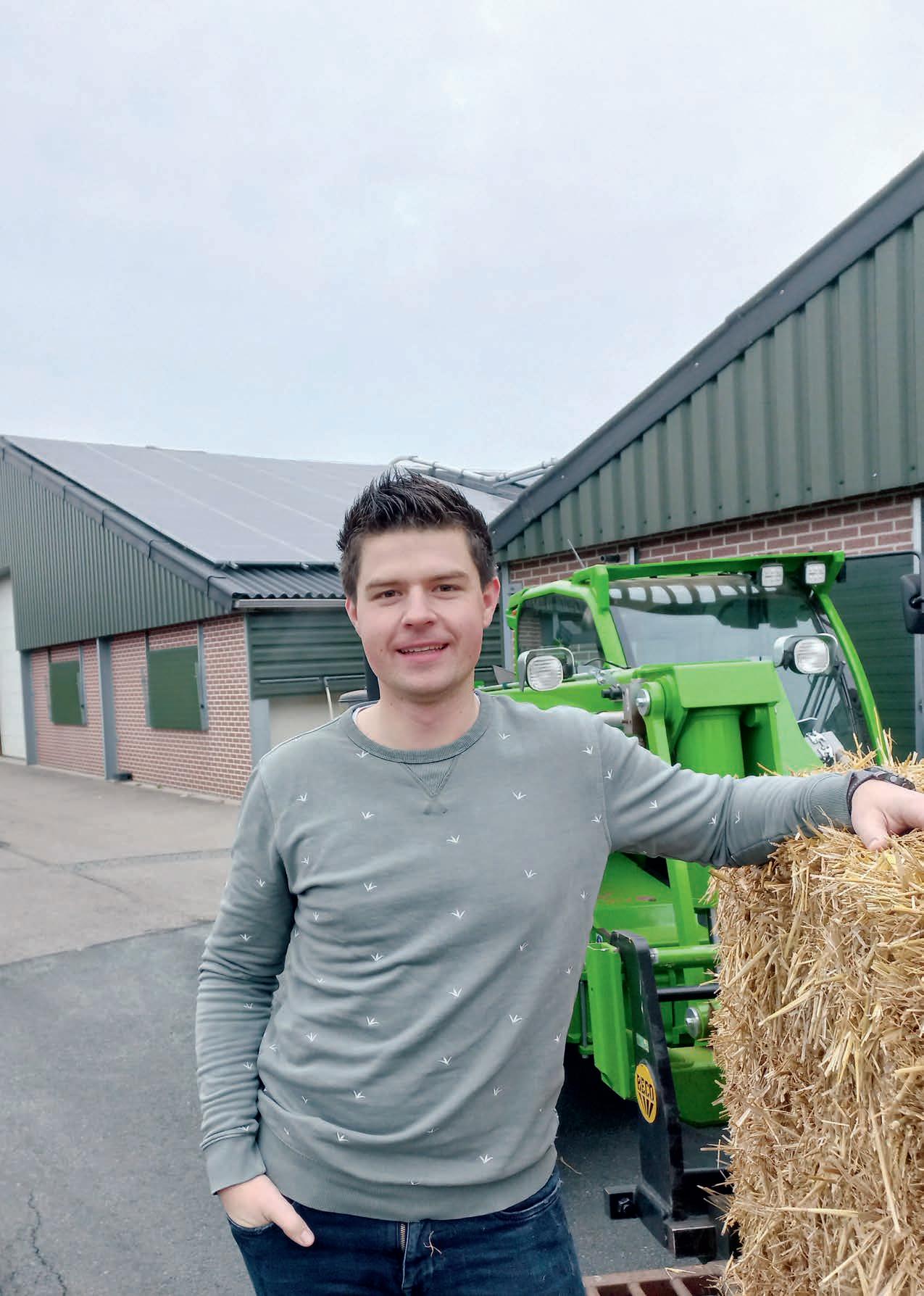
3 minute read
Young poultry people
from PoultryNL
Rens in front of the poultry house at home in Loon op Zand. They keep slower-growing broilers.
Advertisement
‘What seems self-evident, not necessarily is. Not for a consumer that takes a piece of chicken on his plate for granted, nor for a young poultry farmer to assume everyone understands what he or she is doing’, says Rens van Berkel. That is why he is a member of Young Poultry People, a group of about 90 young people working in poultry farming in the Netherlands and Belgium.

Broilers do not live in cages, a laying hen is not the same as a broiler. Rens mentions some examples of people’s misconceptions when it comes to poultry farming. ‘I hate to hear that and want to give people accurate information. As Young Poultry People, we engage with the general public to tell the real story about the broiler industry. We learn from each other and share a passion for working in this sector. Meeting up at social and informative gatherings is also an important part of the youth platform. Because of COVID-19, this was difficult the last two years, but the WhatsApp group was an accessible way to stay in touch with each other.’ ‘Social media is a good way to share videos about social issues such as soy use, but also to break taboos and show how broilers are kept and how the chain from chick to chicken fillet works. Much
more complicated than an outsider thinks. I enjoy explaining this and gaining understanding. During COVID-19, we organised an online open day that was well received. We got enthusiastic reactions’, says 24-year-old Rens van Berkel.
The real story
Rens has been a member of Young Poultry People (YPP) for about four years. He grew up on a broiler farm in Loon op Zand in the Dutch province of Noord-Brabant, where his parents and grandparents are running a poulterer (poultry meat shop) alongside chickens for more than 55 years. After studying at agricultural college, he started as a farm advisor on broilers at Coppens Diervoeding. ‘There I got to know Young Poultry People and became a member instantly. I find it challenging to get in touch with customers: the people who eat the chickens we raise. If they know the real story, they can form their own opinion. We are a group of young people who keep broilers themselves, or otherwise deal with broilers on a daily basis in our work. We want to show who we are and what we do, so that our followers can get an honest picture of how a piece of chicken ends up on their plate.’
Kip.kiplekker
The Kip.Kiplekker foundation started Young Poultry People in 2016 to give young poultry professionals a platform and to share their passion, especially through social media. Kip.Kiplekker was founded in 2008 with the aim of providing good and honest information about the poultry sector and its end product: healthy and tasty chicken meat. They do this by having stands at local and national events and fairs and by providing teaching material for schools. Poultry farmers are members of the foundation and the business community is a partner. ‘We are an innovative sector and we can adjust
quickly. Just look at the various concepts that have been developed in recent years. We use them to respond to consumer demand, but it is important that consumers see that too. I often hear that they don’t know the differences. Some are just not interested; they think all Dutch chicken is safe. But many people are interested and I like to tell them how we produce chicken’, says Rens enthusiastically.
To divide is to multiply
‘It’s quite awkward to film yourself and make yourself vulnerable. But I have learnt a lot from that and it energises me. How do I tell my story? How does it come across? How do I keep the group engaged? We brainstorm about negative reactions: how do you deal with that? I think Young Poultry People is a great platform and I recently signed up as a board member to get the enthusiasm back in the group after COVID-19, which did cause a dip, and to share more stories. Sharing is multiplying. And our sector is special. I am proud of that!’










